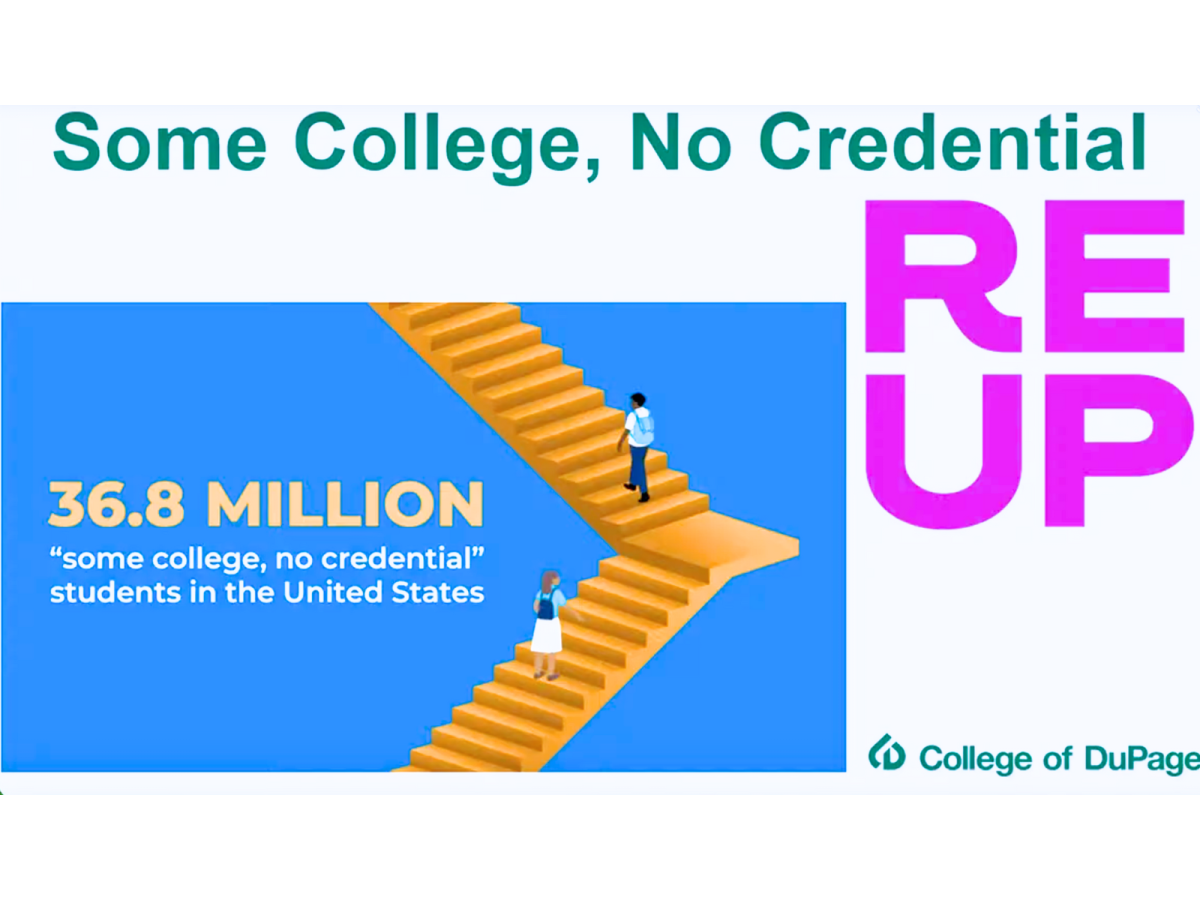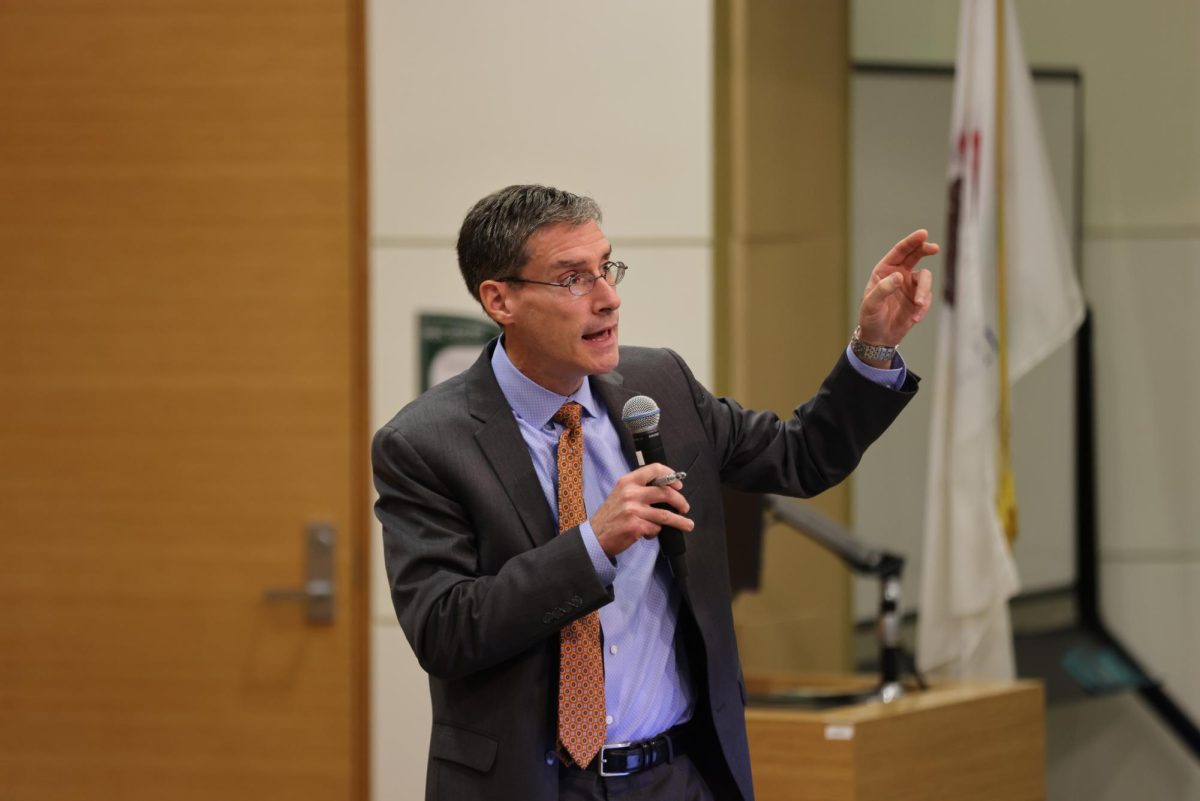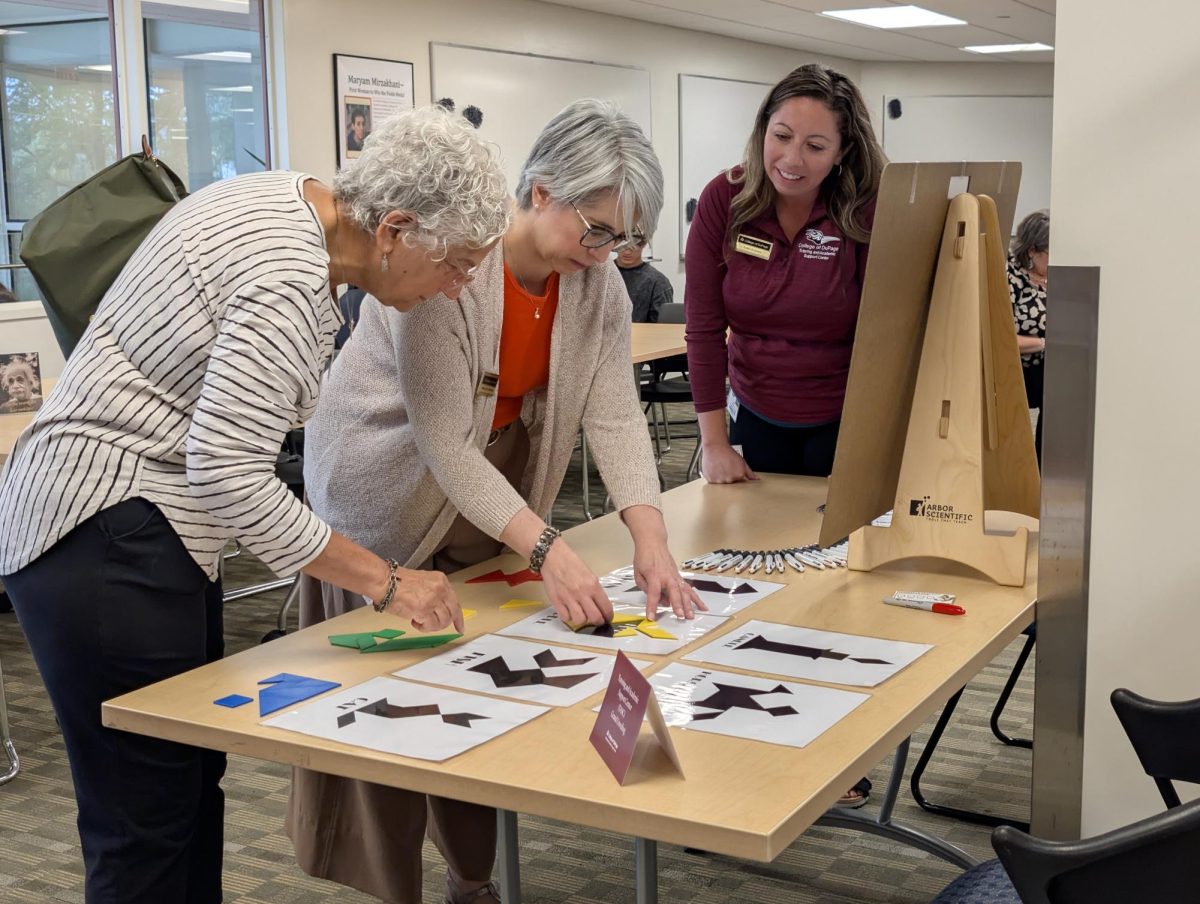When Interim College of DuPage President Christine Hammond spoke with the Courier last fall, there was a big issue on her mind: “some college, no degree.” Hammond noted the barriers non-degree-holding workers have when being promoted beyond entry-level jobs, citing her personal experience with her brother who, despite years of experience, faced tangible difficulties in advancing his career.
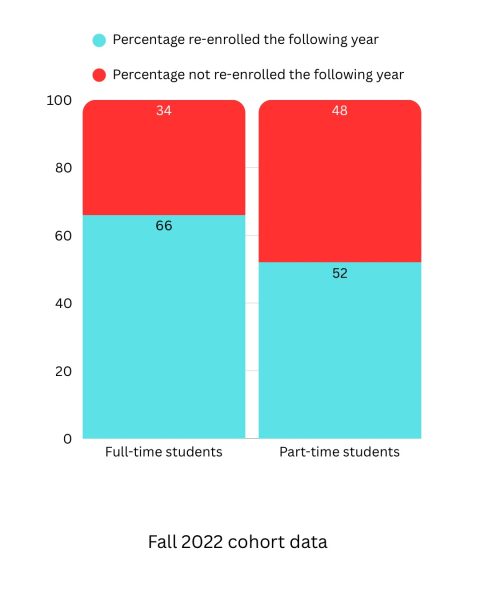
As a result, Hammond announced a partnership with ReUp at the March COD Board of Trustees meeting, which started this Spring semester. ReUp is a company that helps non-degree-holding adult learners re-enter college programs by identifying and eliminating barriers to education and potential, which includes specialized marketing and one-on-one success coaching.
Two other Illinois community colleges, Oakton College and Triton College, have partnered with ReUp. Hammond plans to form a coalition with 10 Illinois community colleges to join with ReUp to identify former students and communicate with them about coming back to school. This encompasses students who transfer out and received no associate’s or bachelor’s degree, or students who only completed partial credit for an associate’s or certificate.
A 2024 retention and graduation rate study for COD by the Institute of Educational Sciences showed only 24% of students graduated from COD while only 30% transferred out for the Fall 2020 cohort, given time and a half of normal time for completion. Furthermore, the data showed a 66% retention rate for full-time students and a 52% retention rate for part-time students for the Fall 2022 cohort. The study showed 46% of students for the Fall 2020 cohort did not earn an associate’s degree nor were they on a path for a bachelor’s degree.
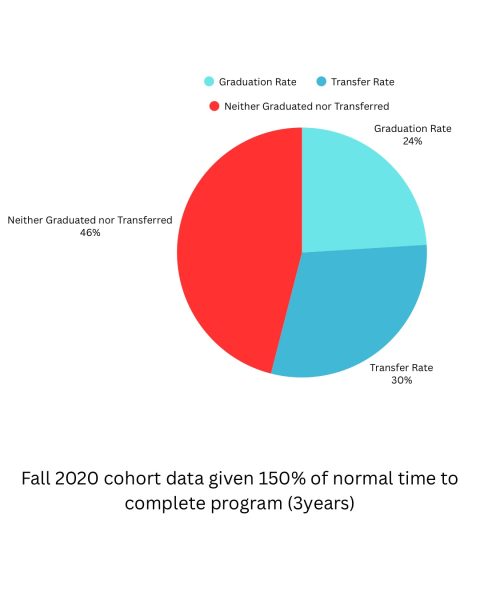
Data from the Institute of Educational Sciences IPEDS Data Feedback Report 2024
As far as the cost of using these services, the company takes 24%-27% of the tuition (percentage depends on how many other colleges sign up) paid by these re-enrolled students. ReUp would charge fees for every semester a re-enrolled student completes, however, the student must stay and complete their studies for ReUp to collect its tuition percentage.
“We often talk about enrollment, retention, and completion. All of us are happy when those numbers grow, and they have been growing at COD, especially because it means that those individuals have more options and stronger futures. However, the sad reality is that many of those who start a college degree do not complete [it],” said Hammond. “[ReUp] will work with us to identify former COD students who have stopped out. ReUp will find and reach out to those students and guide them back to our advisors and counselors.”
However, COD Truste Andrew Manno, who ran for the board on a policy of increasing enrollment and fiscal responsibility, shared his doubts about paying for ReUp. He pointed out that COD would lose up to $1 million of tuition in fees to ReUp, versus just using in-house marketing and advertising. Manno also expressed concerns about how this might affect budgeting projections and plans.
Trustee Nick Howard said this money would not exist without the introduction of the program anyway, so it is an overall net positive financially.
“All the traditional ways that we’ve looked [at] to try to communicate with existing students and past students have not worked, and this is sort of another way,” Howard said. ”If we agree that we’re looking at a population of students that we would consider sort of ‘lost’ at this point, I think that’s probably the best way to come to grips with the fact that we don’t have the capacity or the wherewithal or the technology to communicate with them, and that’s what ReUp does well.”
Despite numerous questions, Manno expressed his support for the initiative.
“To be clear, I am for this,” Manno said.
ReUp’s outreach can also help the college prevent more students from dropping out and failing to complete their studies.
“The other advantage of ReUp is it’s going to give the college some good information about what are our barriers, why did these people leave, and what’s preventing them from coming back,” Hammond said. “To track these folks down is a challenge, and one that we don’t have the resources for here.”
Hammond also pointed out how this will improve economic outcomes for the District 502 community. She talked about how students invested in their education through tuition, but the state funding and district taxes invested an equal, if not greater amount, into those same educations.
“I’m sure we will hear later tonight how tuition by itself doesn’t cover the cost of an education at COD,” Hammond said. “When we don’t make efforts to bring those students back to the college towards completion and [give] them the benefits of a college degree, as it will play out in tax revenue and community participation and all of the other things we know come with completing your degree. When we don’t do that, we fail to do that, we let them be just out there, then we are leaving the county and the state money on the table too.”
ReUp projects 8,254 students can be re-enrolled over the course of 5 years, which would bring in a projected $9,643,467 for COD (with ReUp’s fee applied). The partnership will begin the 5-year contract this semester.



